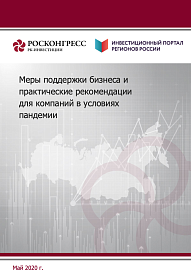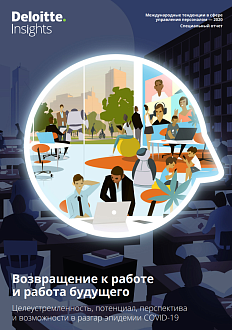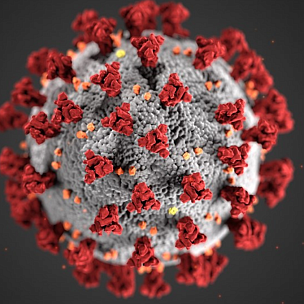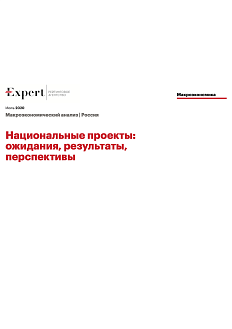The research prepared by the experts from the Fund RC Investments which is an investment unit of the Roscongress Foundation explores both the current situation and projections of the coronavirus’s impact on the Russian economy and across the world. Besides, it depicts the main challenges and measures to support business in the context of COVID-19 outbreak. It also provides recommendations on how to streamline measures to support SMEs that facilitate overcoming the crisis. The research also contains the best practices and operational checklists for various fields of economic activity.
The Roscongress Foundation’s analysis highlighted the main points of this research and accompanied each and every one of them by a relevant video episode featuring panel discussions held in a framework of business programs of the mainstream events organized by the Foundation.
The ongoing COVID-19 pandemic has become a global challenge for the healthcare system, as well as citizens and the Government of the Russian Federation. It also severely impacted the country’s economy.
As per WHO estimates, at the time of writing this report the number of people infected by the coronavirus exceeds 4.7 million people in the world and 290 thousand people in Russia. According to Fitch Ratings, the global economy in 2020 is likely to see GDP decline by 3.9%. The Central Bank of the Russian Federation anticipates the country’s GDP decrease by 6%.
According to Alexei Kudrin, the Chairman of the Accounts Chamber, the number of unemployed citizens in Russia by the end of 2020 will reach 8 million.
Besides, the authors of this research identify the main pool of problems encountered by the businesses in the context of the coronavirus outbreak that determine success in combating the economic consequences of the pandemic, such as:
· revenue decline and increasing customers’ non-confidence;
· risks for the employees to get infected on the job;
· supply chains disruption;
· impaired communication both within the companies as well as with clients and partners due to remote work setup;
· threat to financial stability due to changed cash flows;
· increased uncertainty requiring fast decision-making.
In the context of the established challenging economic situation, the Government of the Russian Federation is taking a set of measures aimed at reducing the potential negative impact from the pandemic on baseline economic indicators.
The Government of the Russian Federation introduced measures for the following areas of business activity:
· all types of enterprises, including SMEs;
· worst-hit sectors of the economy;
· hardest-hit SMEs;
· systemic companies;
· tourism;
· financial institutions.
Part of the measures applies to all types of enterprises, including SMEs. A separate category of measures is developed for the sectors that are most severely affected by the coronavirus pandemic.
Under the current situation, companies can take advantage of the wide range of measures taken by the state to support the Russian business, including fiscal loosening, simplification of pharma drugs registration procedures, provision of state-backed loans to enterprises, deferred rental payments for commercial real estate, support measures in the field of logistics and customs services, and also a moratorium on bankruptcy and targeted measures aimed at supporting individual sectors of the economy.
However, it is not possible to overcome the crisis solely relying on support from the government. Companies have to independently adjust their operational and strategic priorities.
According to the authors of the research, the business leaders should both become extremely serios about operational priorities, including adaptation of the processes, systems and approaches to people, as well as ensure fast decision-making by the top-management. This research includes operational checklists that might be helpful to the corporate management teams in identifying the inception points on the way towards stabilization and ensuring the business continuity.
Besides, in the medium term it will be required to adapt the corporate culture and strategy to fit the new business reality.
Video: https://roscongress.org/sessions/rossiya-2035/search/#01:09:40.343
Small and medium enterprises will need additional support measures to overcome the crisis caused by the coronavirus infection.
The research authors compiled a list of measures that foster accelerated exiting the crisis caused by the coronavirus infection and make further development of the economy more effective. The list of measures is based on the «Draft national action plan to normalize business environment, restore employment level as well as peoples’ incomes and economic growth».
The research authors provide the following recommendations on how to improve the business support measures aimed to overcome the crisis:
· fostering the implementation of large-scale investment projects (over 4 billion rubles) within the territory of subordinate entities of the Russian Federation;
· increasing the attractiveness of the priority social and economic development territories established in the single-industry municipalities of the Russian Federation (single-industry towns);
· rendering state support to the single-industry towns, including: reimbursement of costs pertaining to the establishment of infrastructure facilities in the single-industry towns;
acceleration of adoption of a normative legal act determining the mechanisms of the state support for entrepreneurial activity and single-industry towns within the amount not exceeding the tax payments from new investment projects (TIF);
· facilitating conditions for the accelerated development of the largest urban agglomerations and the decentralization of the population and productive power distribution, including: accelerating finalization of the federal legislation on the development of agglomerations; designing a federal developmentprogram for 15 largest agglomerations;
· introducing additional measures for the development of export capacity; waiving all penalties for the exporters while utilizing the state support measures; provision of all financial support measures for the exporters regime that guarantees such support measures to last for at least 3 years;
· development of a digital twin for each region enabling to form a comprehensive electronic model of the region; devising a separate state program at the federal level facilitating the development of own digital maps for 20 largest subordinate entities of Russian Federation;
· drafting of the federal law «On Big Data»;
· additional efforts on the international tourism recovery;
· innovative companies located within the territory of technology parks shall enjoy reduced tariffs for insurance contributions in the amount of 7%;
· supporting of public employment through the adoption and implementation of additional activities aimedat reducing tensions at the labor market in the regions of the Russian Federation.
We also invite you to read other materials posted on the special sections of the Roscongress resources, such as StayHomeEconomy, Entrepreneurship, SMEs, Investment Projects and Intra-company investment devoted to possible ways of stabilizing the economy under the pandemic, as well as measures to advance entrepreneurship and investment activity.






